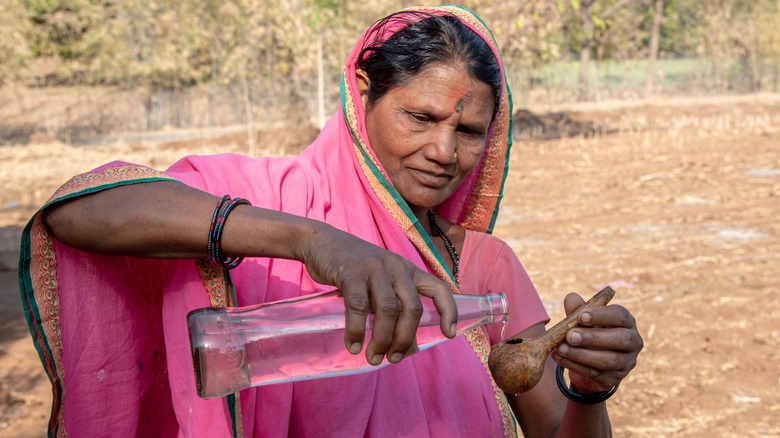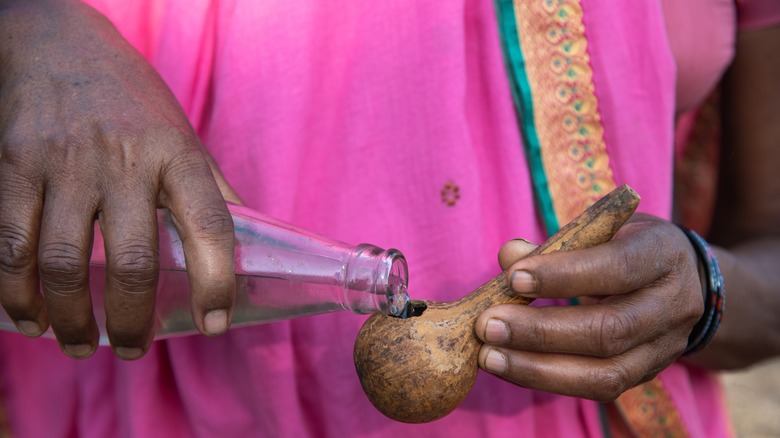Why India's Mahua Liquor Was Banned During British Rule
If you've never heard of mahua, you're not alone. India's flower-based distilled liquor has only recently begun to blossom commercially. It was officially given "heritage liquor" status in 2021, according to the India Times, and is now being craft distilled and sold by the brand Desmondji (aka DJ). Desmondji's founder, Desmond Nazareth, has openly discussed his desire to establish an international market for the traditional tribal spirit, notes the Network of Indian Cultural Enterprises.
It would be a remarkable story given mahua's long and troubled history, much of it – the most troubling parts, anyway – caused by colonialism. In the beginning, however, liquor was but one of the many products made from the mahua tree (madhuca longifolia). Over its 3,000-year history as a product source, this "tree of life" has been used for purposes as diverse as art, food, liquor, and medicine, recalls the BBC. It also produces seed oil and cocoa butter, observes Down to Earth, making it all the more valuable an asset for India's Adivasi tribes. Adivasi is the name given to the country's indigenous inhabitants. These are the people that created the mahua spirit and who have been most negatively impacted by its long prohibition, reports Wine Enthusiast.
The trouble started with the onset of the British Raj, the era of British colonial rule in India that began in the middle of the 19th century (1858, to be exact), explains the BBC, and continued until India finally won its independence in 1947.
The legacy of the British prohibitions on mahua liquor
Making mahua liquor has been a part of Adivasi culture from time immemorial, with traditional distillation methods used for the distinctive white flowers, explains Oxford Reference. Adivasi women ferment and distill the liquor over a period of nearly a week, using clay pots and pot stills. During the heyday of the British Raj, however, this traditional liquor was consciously labeled as a danger to public order, and several laws were passed against its production, notes the BBC. Even the gathering of mahua flowers was strictly regulated by British authorities.
The pretext for this suppression was mahua's danger to the public. But the real reason was economic. According to the BBC, the colonial occupiers wanted to sell their own liquor to the country's inhabitants. Bans and taxes over the years caused the Adivasi to take a more covert approach to mahua production, often at the expense of quality. The situation has scarcely improved after India's independence, Wine Enthusiast points out, as prohibitions and excessive taxing have continued in many Indian states into the present day. Desmond Nazareth's goal of a global market stands in stark contrast to the domestic situation. As of 2020, his Desmondji brand mahua was able to be sold in only two Indian states.
Things are improving, however, albeit slowly. Mahua's status has progressed on a regional basis from "country liquor" to "Indian-made liquor" to "heritage liquor," observes the BBC. But bans do still exist in some Indian states.

